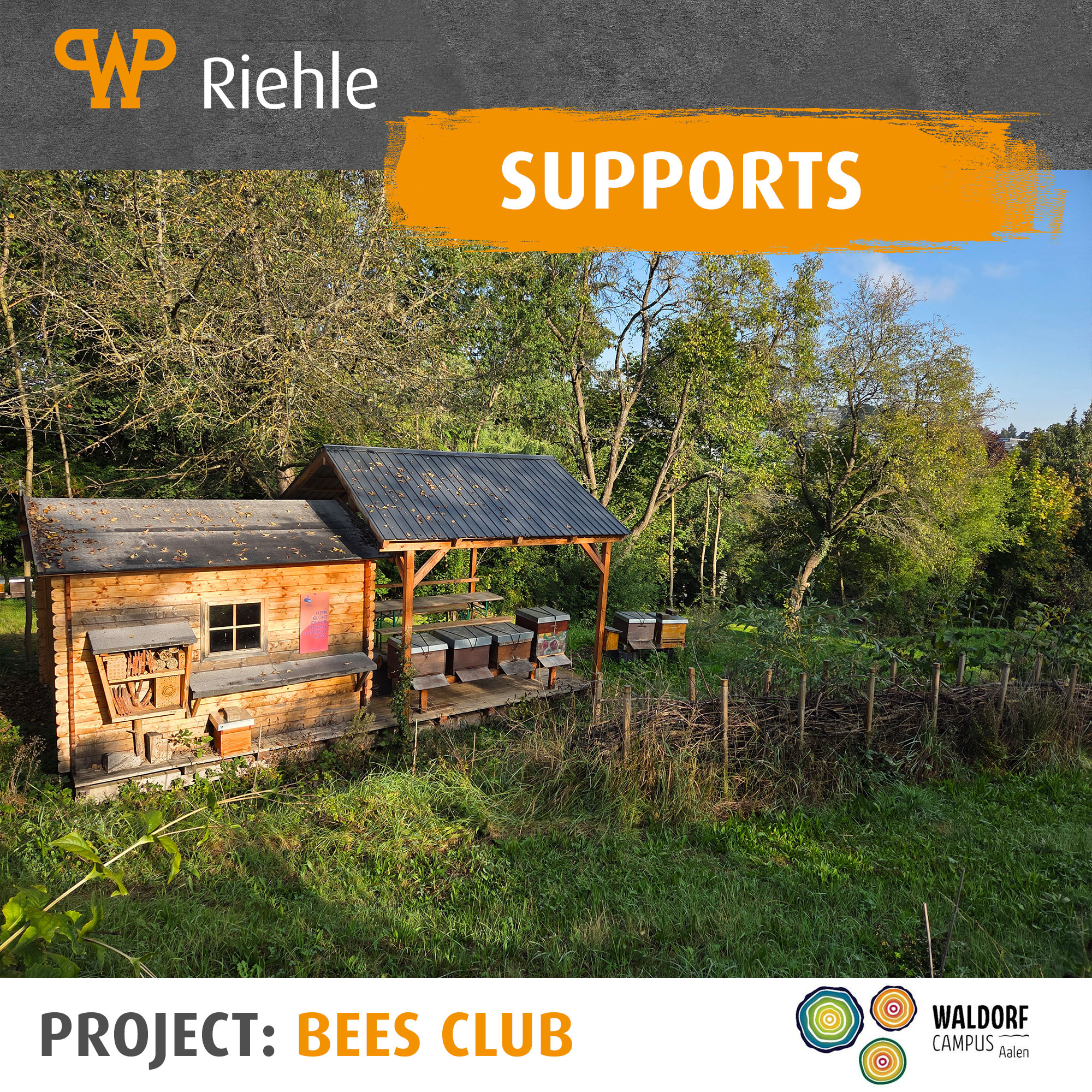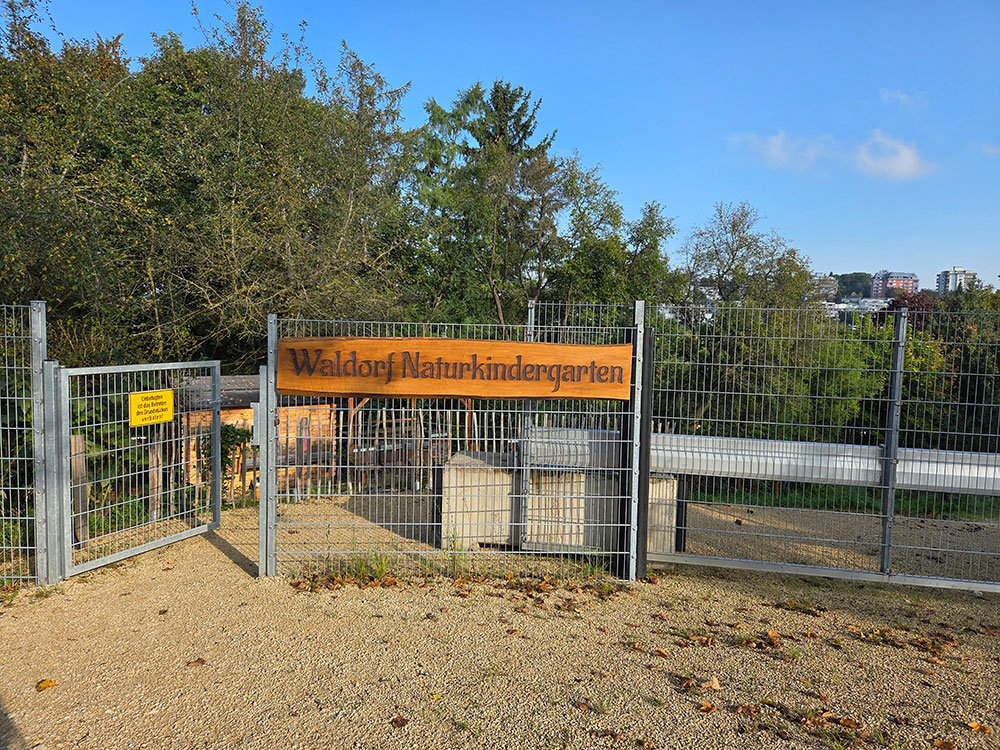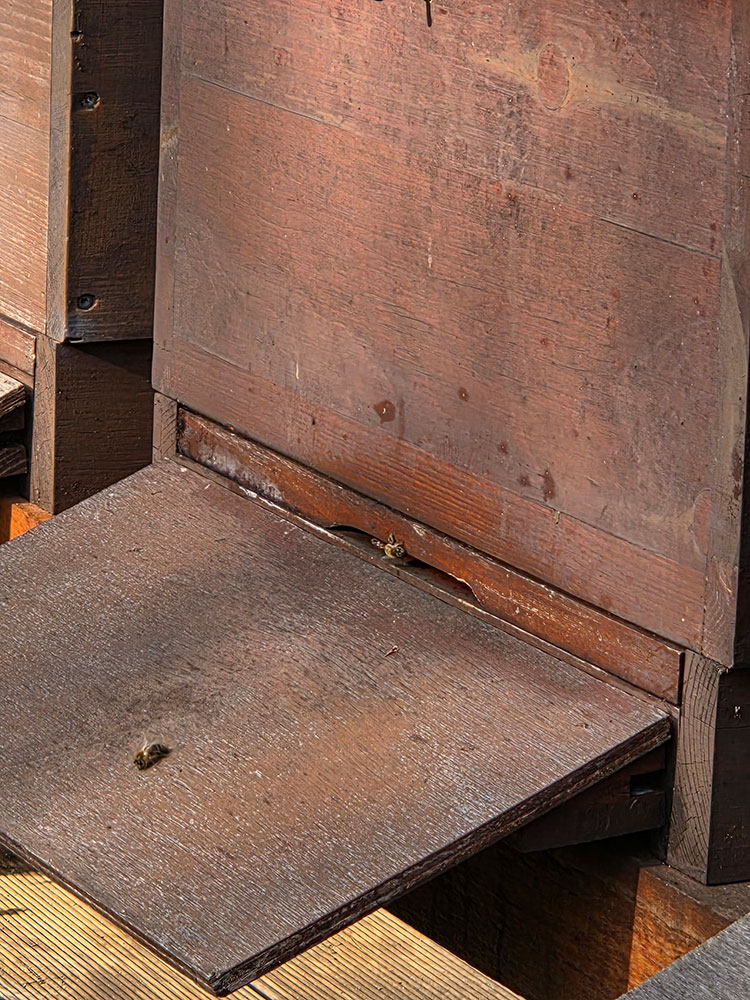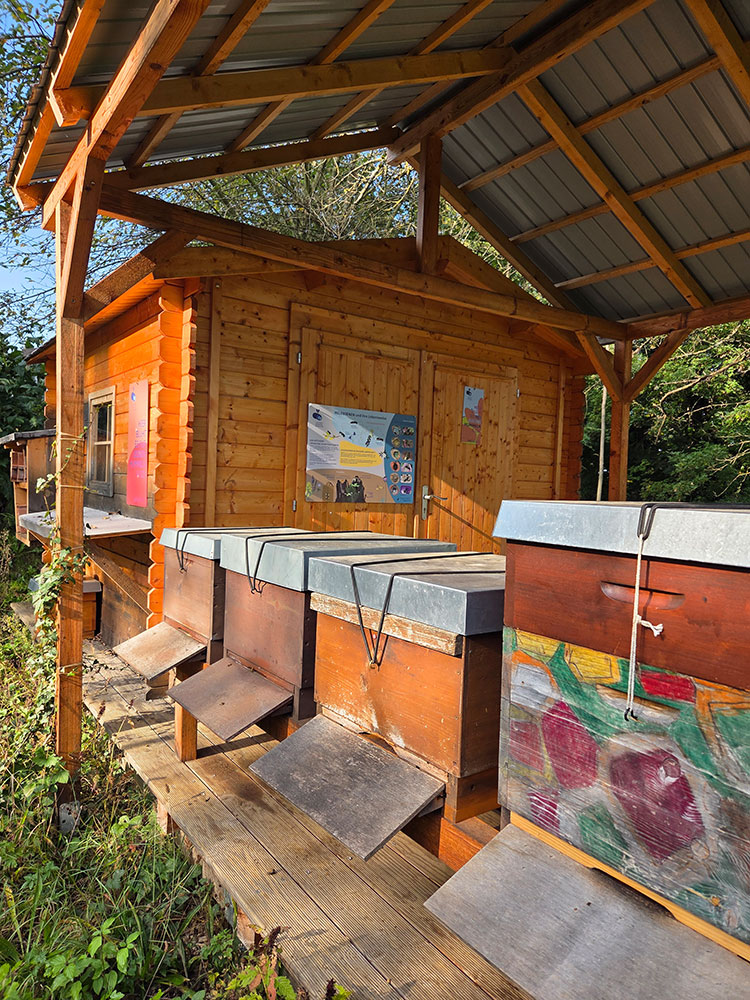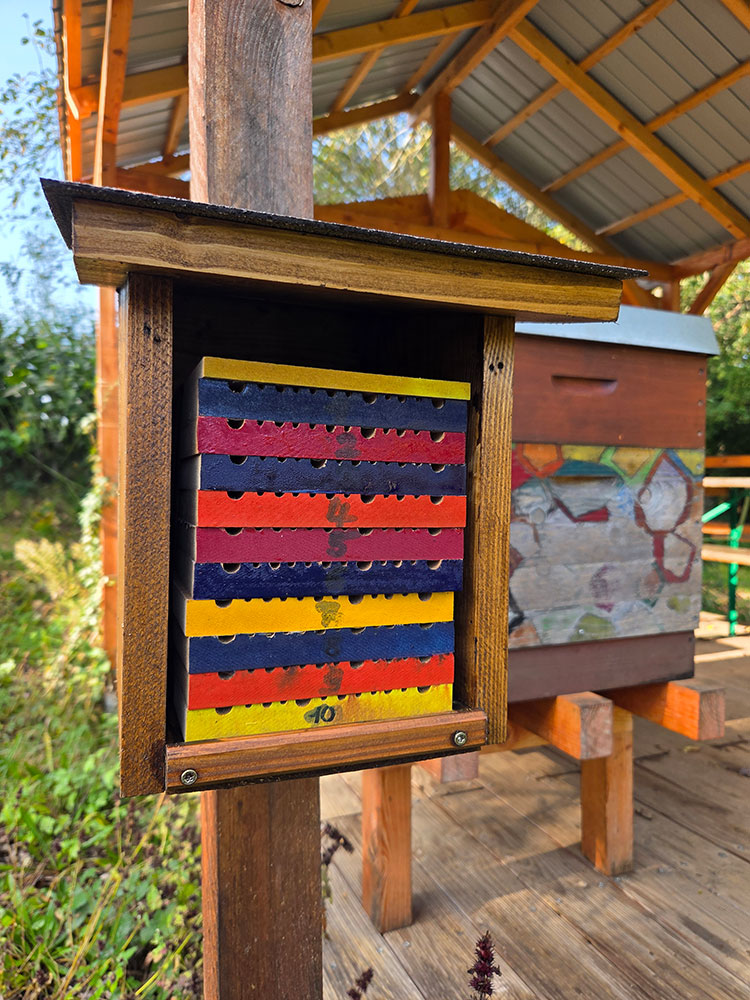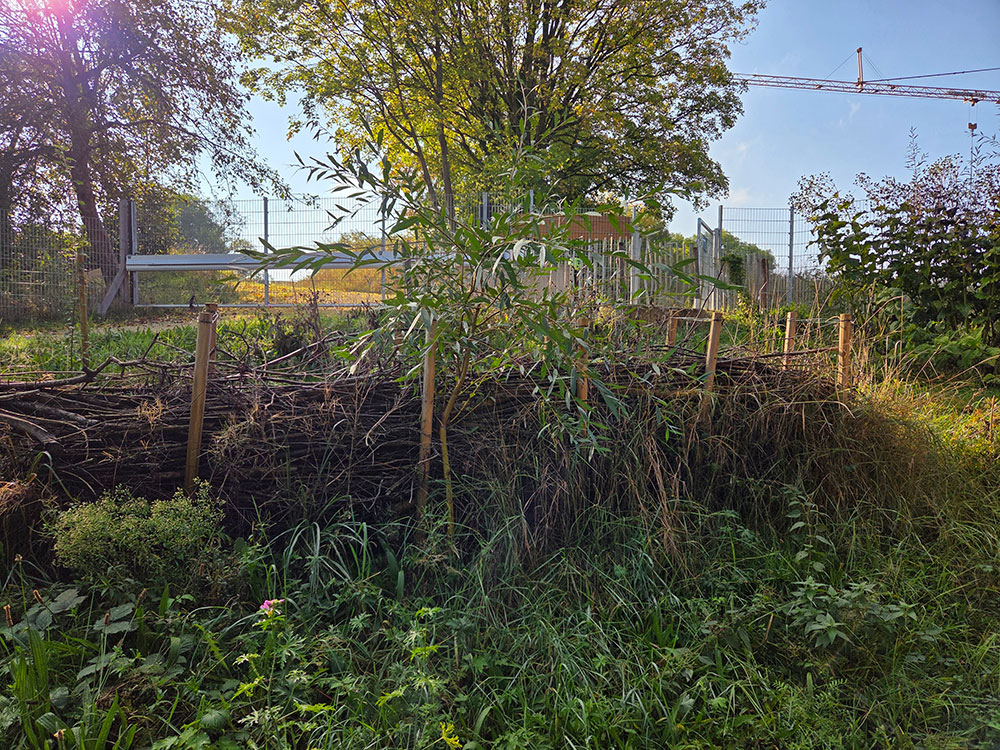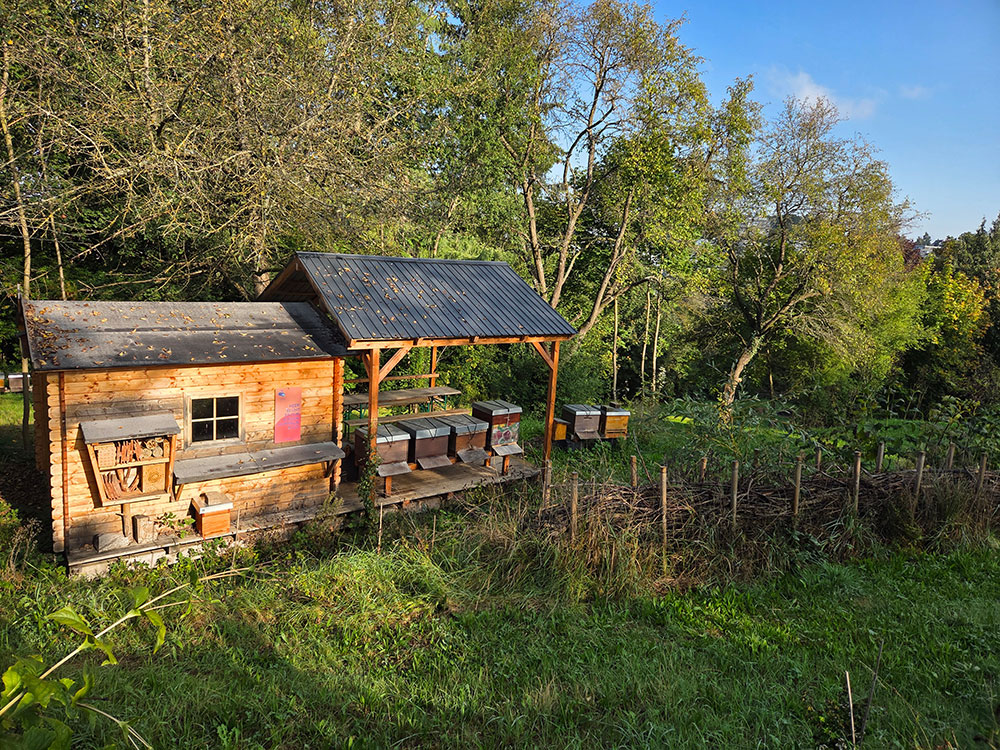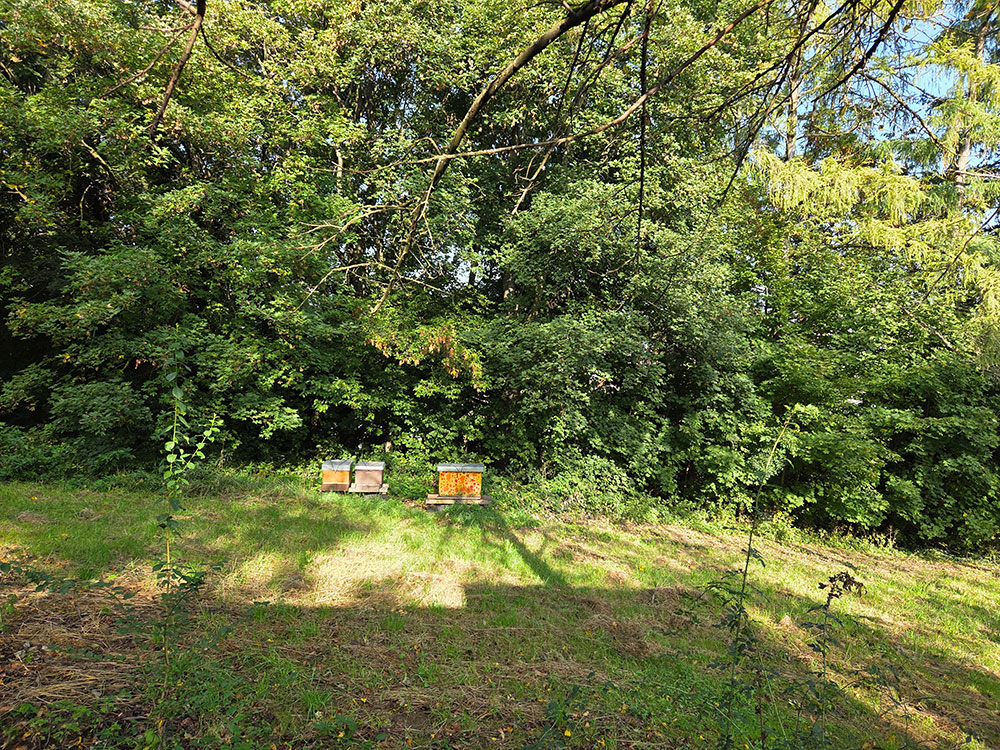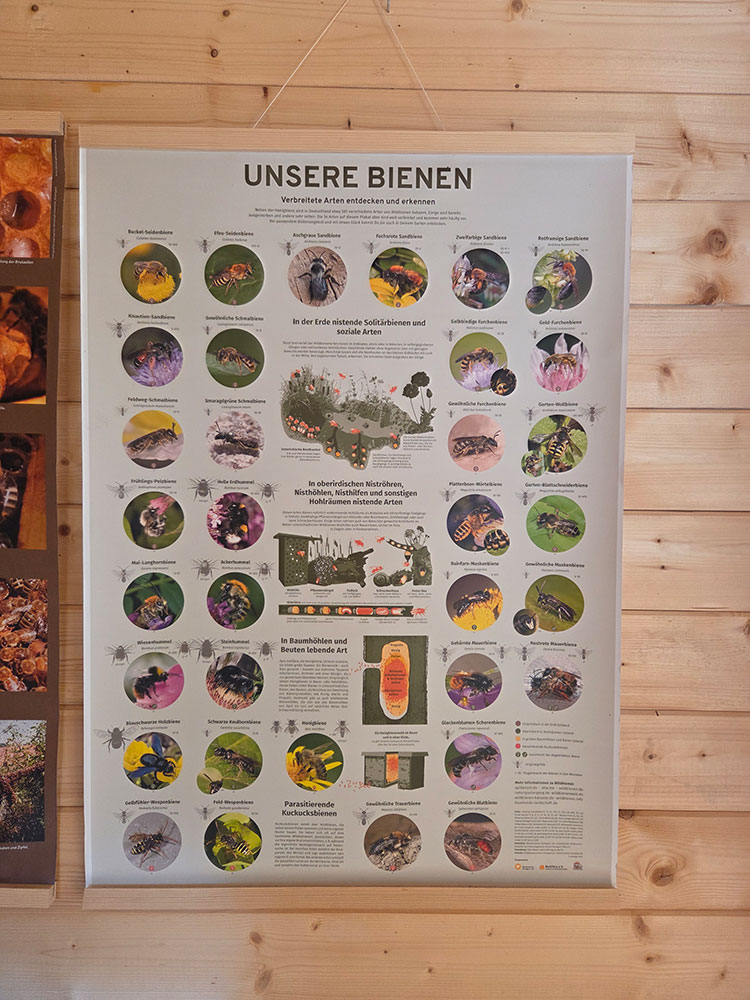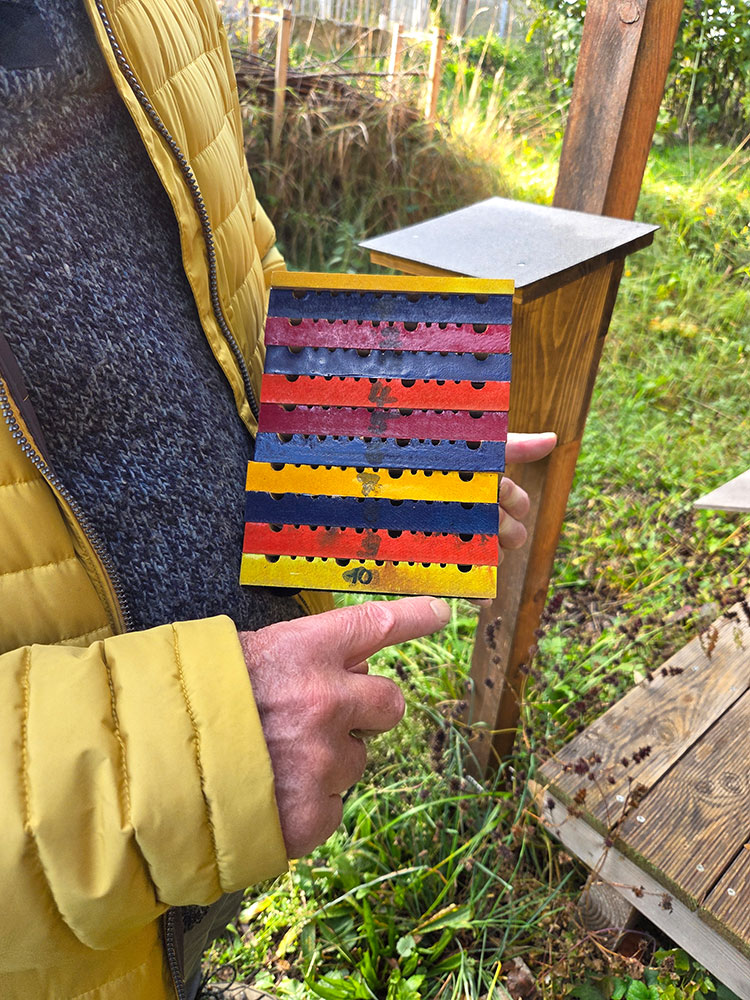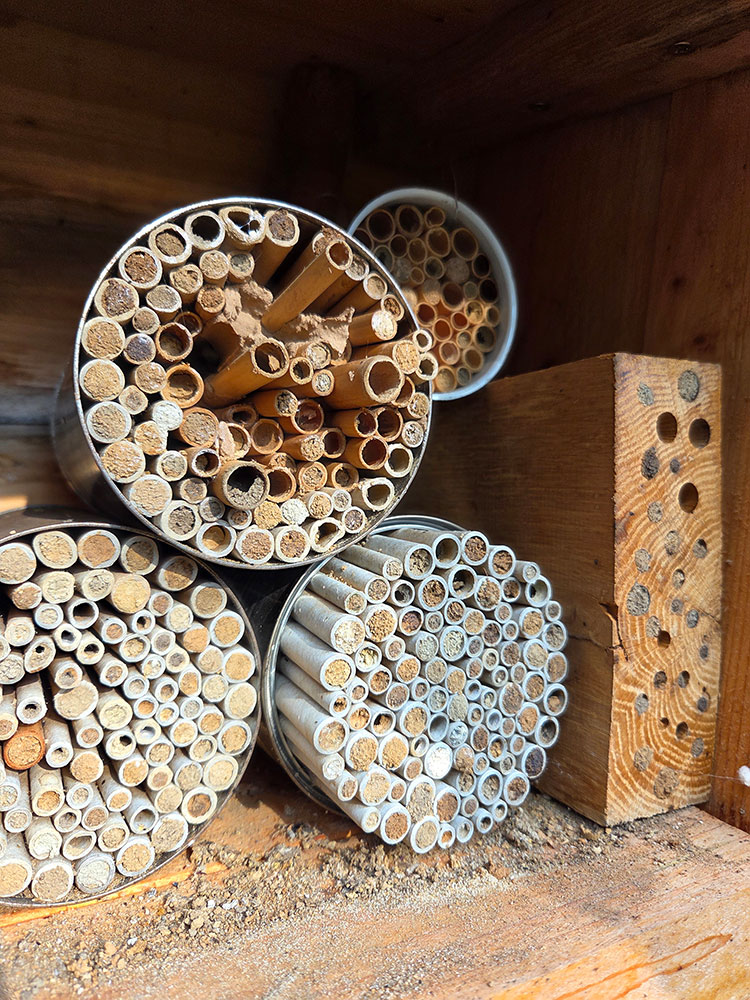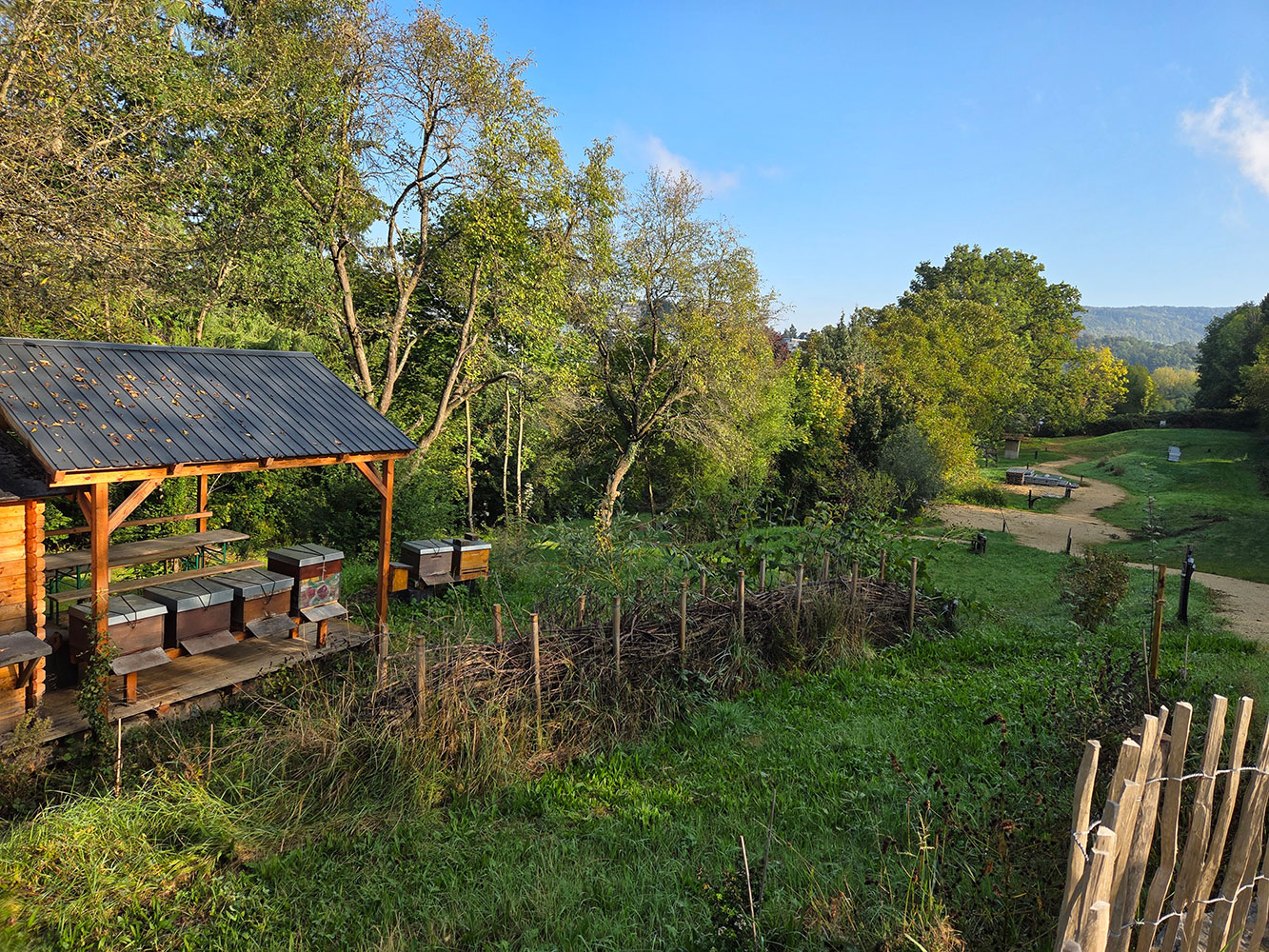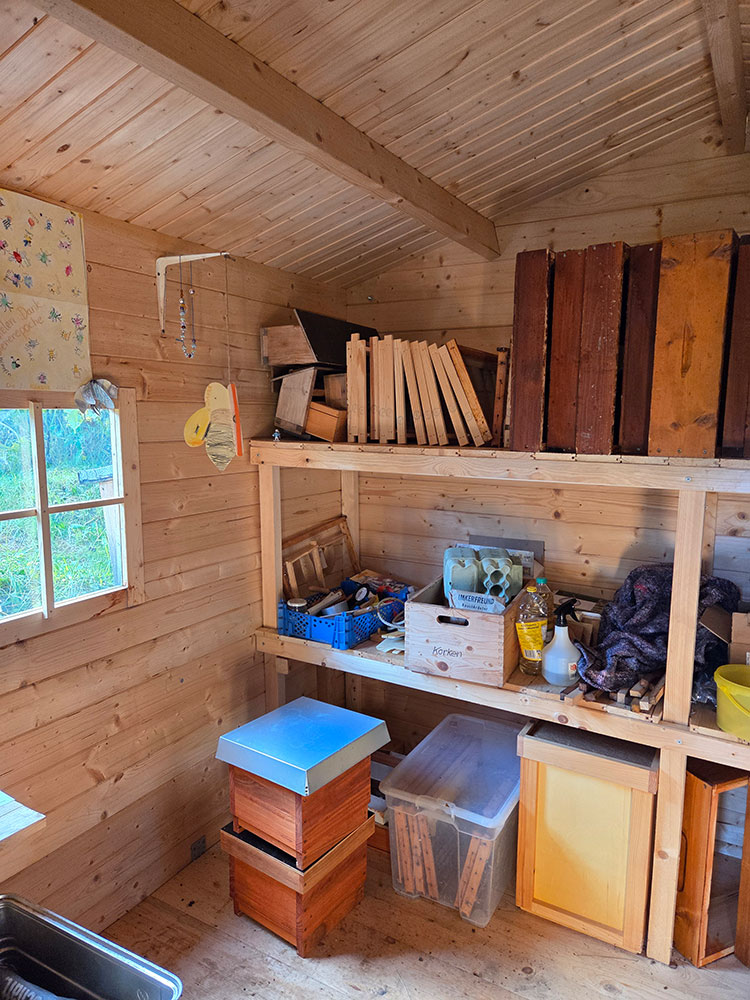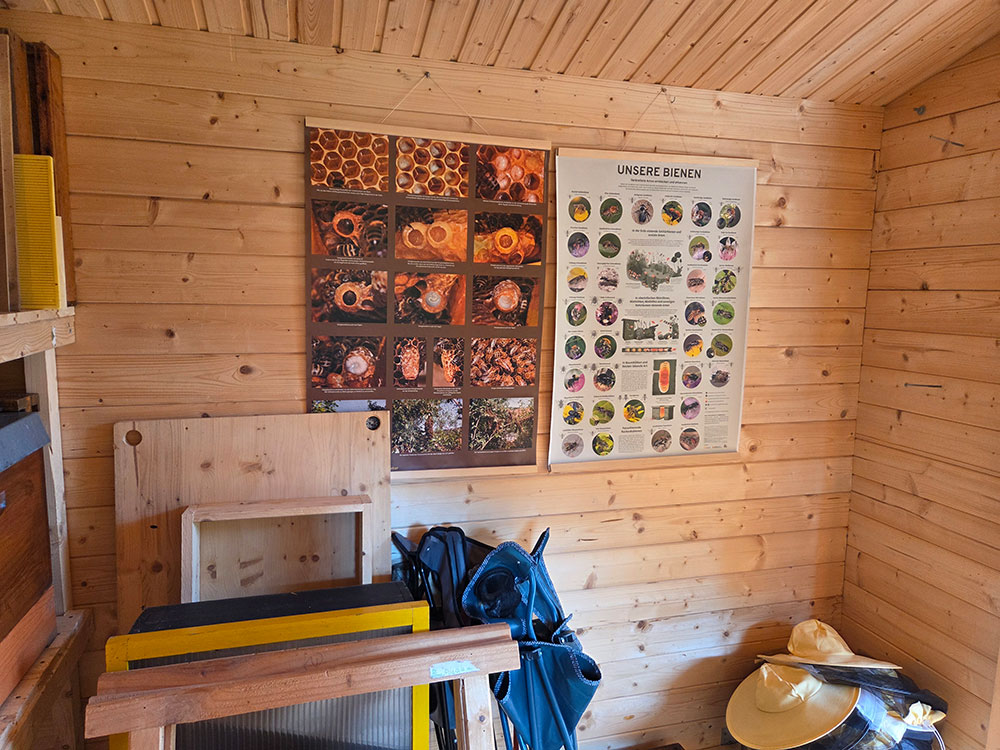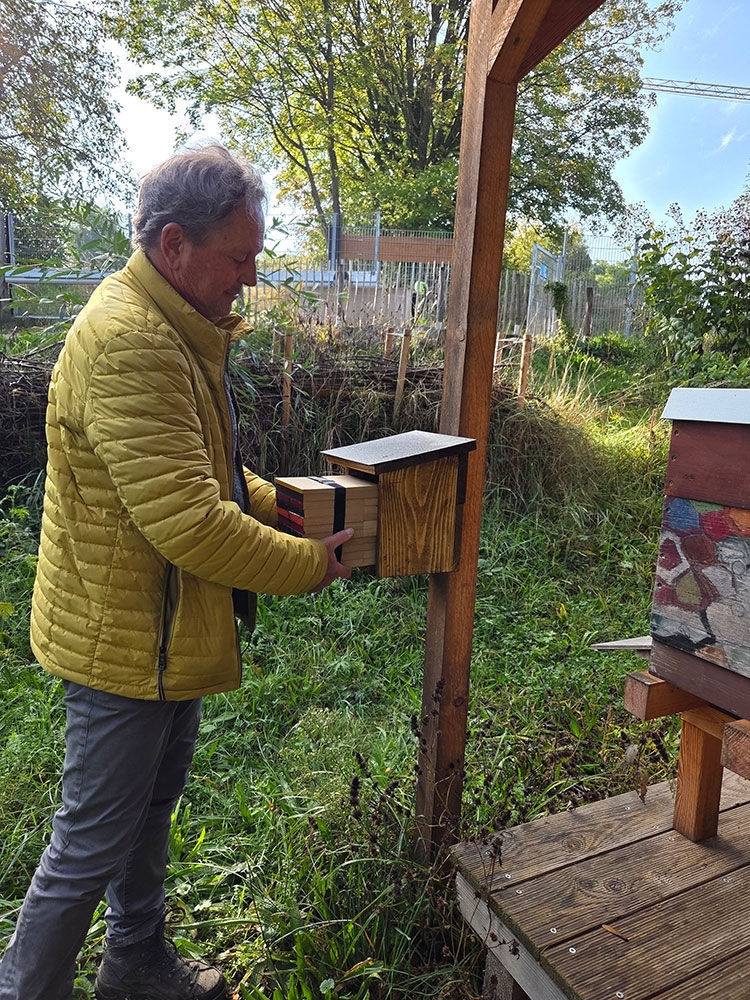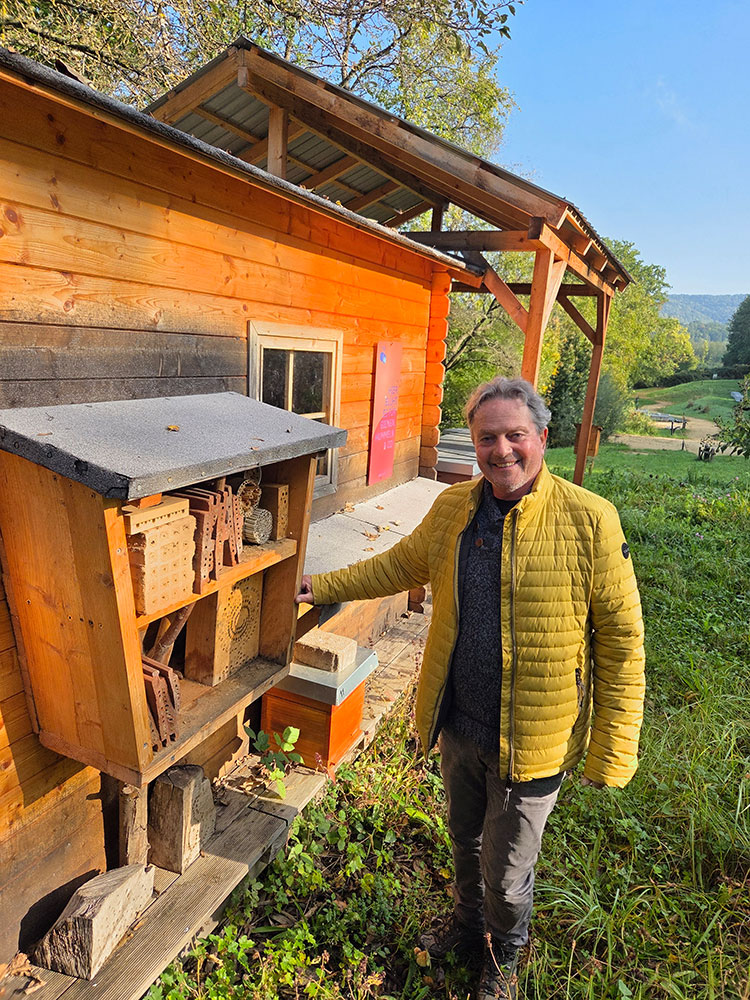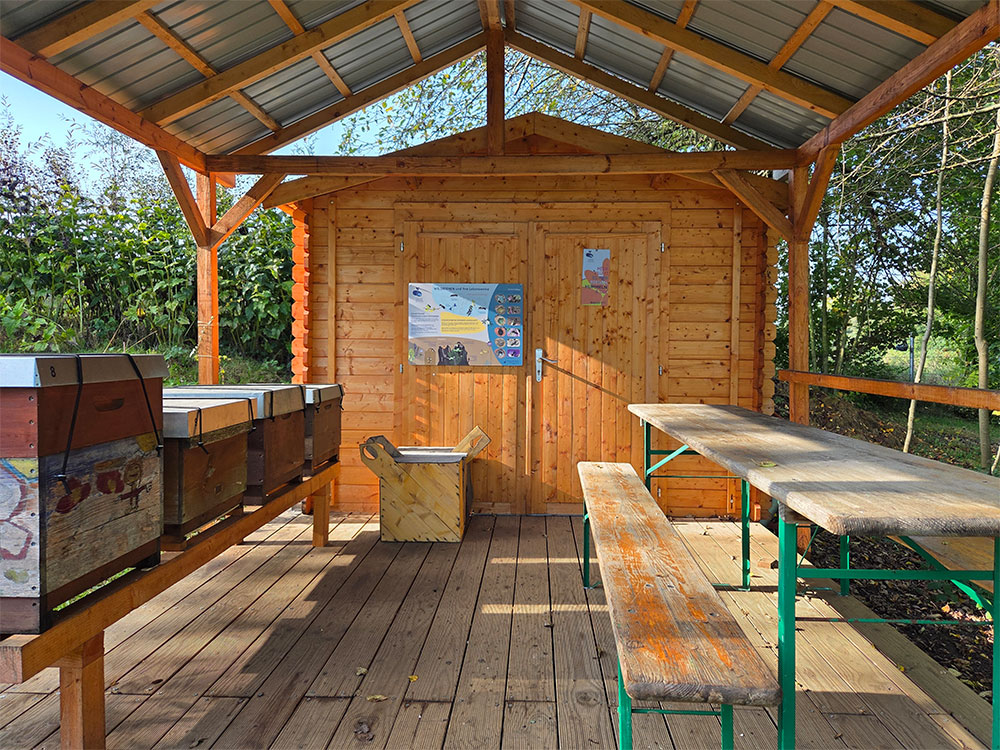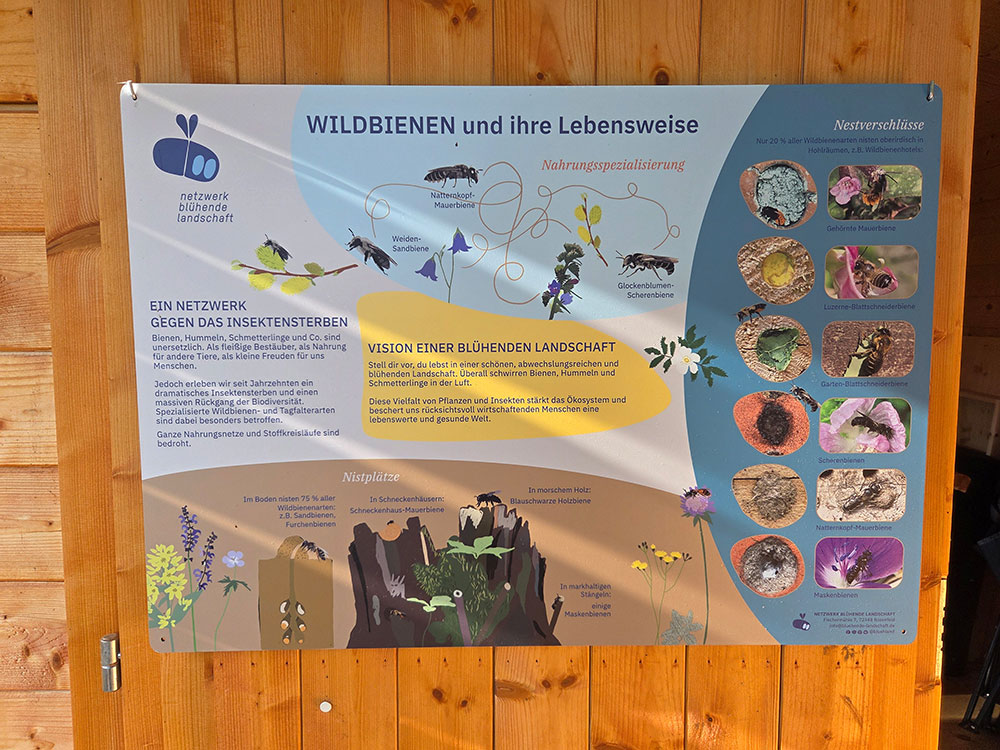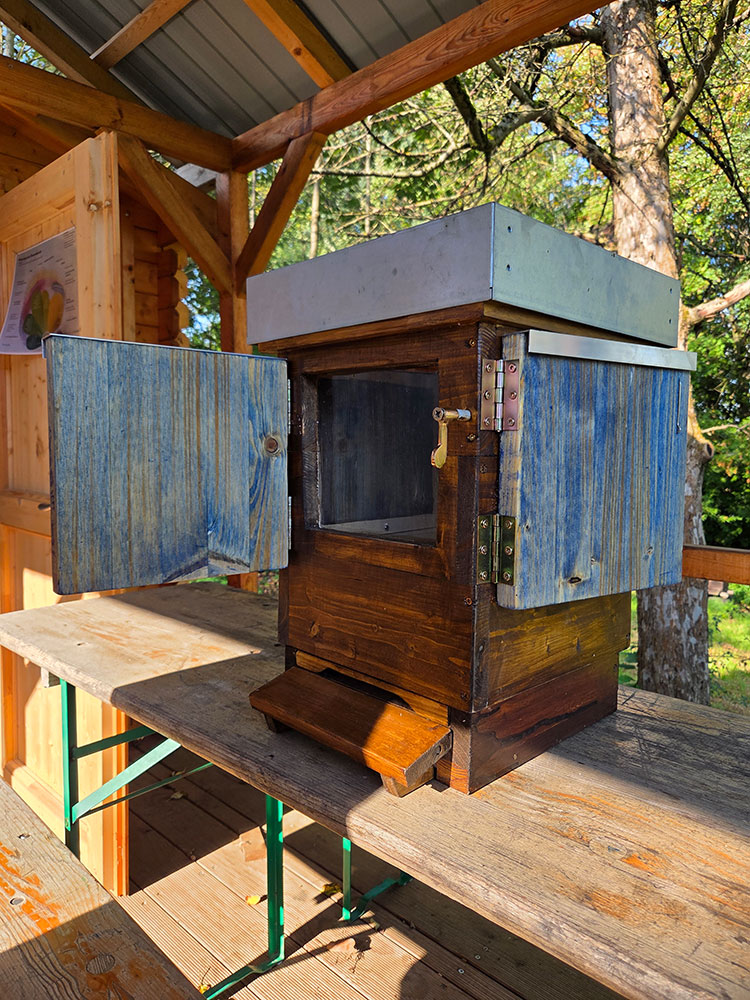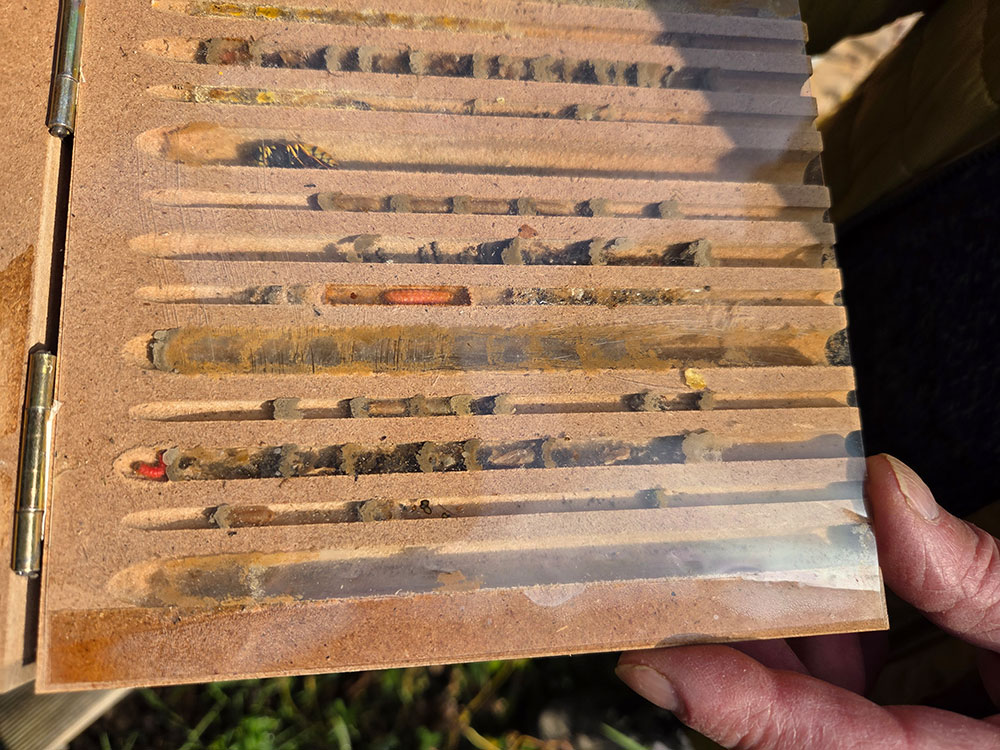
Review of a year of the bee project at the Waldorf School in Aalen
1 October 2025
In 2024, we at WP RIEHLE contributed to the financial support of the bee project at the Waldorf School in Aalen. A brand new beekeeping hut with beehives was built there, largely by the school itself, in its own school garden. The school had set out to teach its pupils about this wild animal species. That it is not just a buzzing animal that can sting, but a truly valuable treasure. In order to raise awareness of these animals and our natural environment, a bee club was set up for pupils from Year 6 onwards.
Additional funds were needed to purchase the necessary veils, protective clothing, a honey press, new beehives, filters and containers for honey processing, etc. for the students. We found this project very exciting and groundbreaking right from the start, which is why we decided to contribute 500 euros in 2024.
Today, one year later, we visited the Waldorf School in Aalen and were shown the bee project by Mr Fritzsche, who is truly passionate about this project and has a wealth of expertise on bees.
He briefly demonstrated what he usually teaches the children. Many children visit here: those from the nursery school (wearing protective veils, of course), pupils of the second degree on a three-week bee study programme, and once a week the pupils from the bee club. Here, they not only marvel at the bees, but also examine and record the stages of bee larva development, for example. There are various display cases for this purpose. The school even recently received an award for one of its display case models (see picture of coloured box).
At the start of the project, there were three bee colonies here. Now there are already eight. Although the bees are not kept here for their yield, they still produce between 10 and 20 kg of honey per colony each year. Next year, a yield of at least 80 kg of honey is therefore expected, provided it is another good year. The honey is sold directly at the Waldorf School and is in high demand. This means that the project can be largely refinanced over the years.
Wild bees are also welcome to make their home here. Plenty of nesting sites have been created for them too. A true bee paradise. The children also learn about wild bees, flowering plants and ecological relationships.
Mr Fritzsche also proudly showed off the display hive he built himself, which will be inhabited from next year. He lovingly handcrafted a box with four flaps and windows behind them, through which you can see inside. There, the children will be able to marvel at the honeycomb construction, which is done by the bees themselves, because here the bee colonies are allowed to swarm freely and build their own honeycombs.
Mr Fritzsche also has many other ideas for the future of bee working group, which he would like to realise together with the children.
A truly fascinating and exciting project – not just for children!






